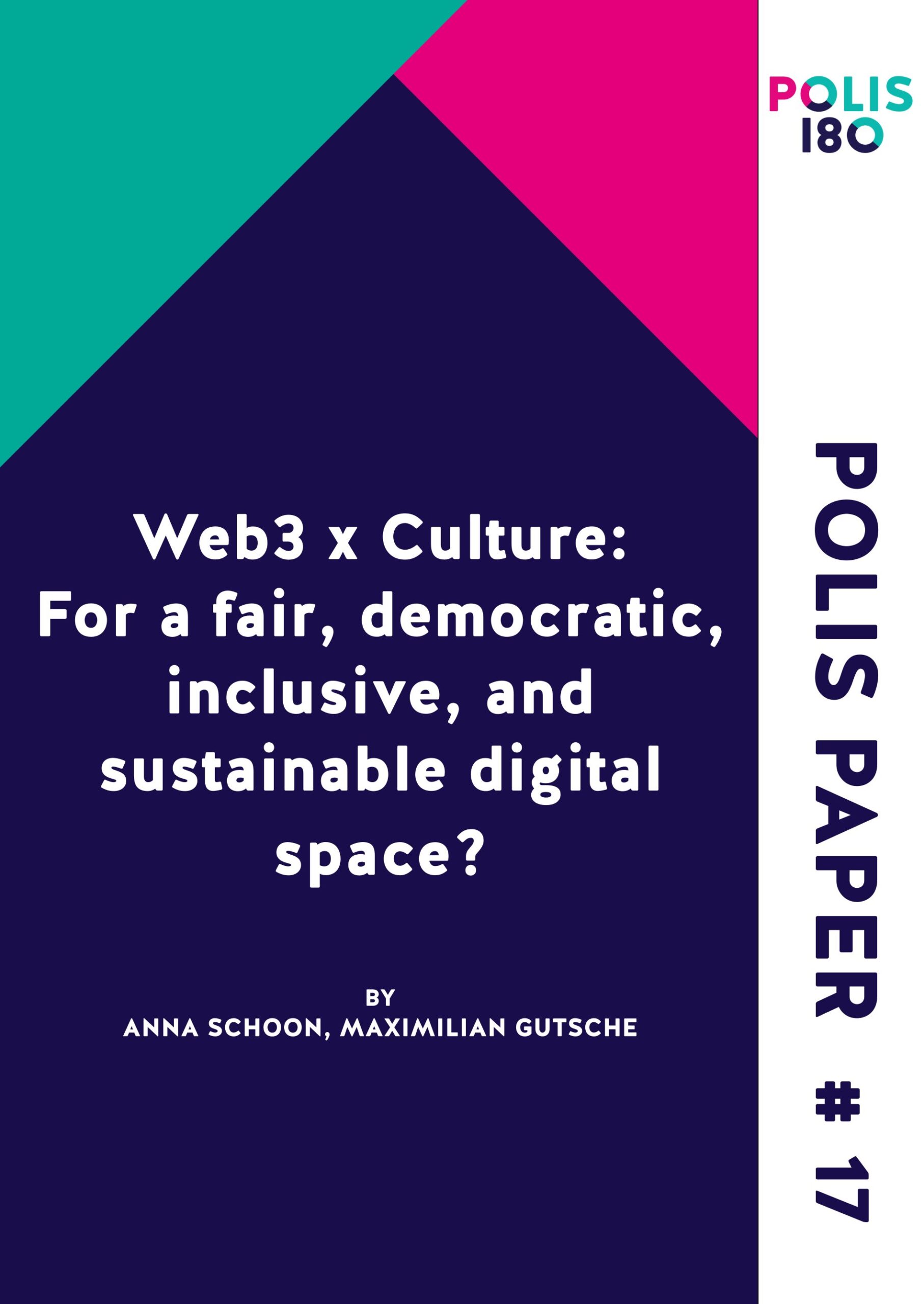This paper is part of a series of papers highlighting fields of innovation in the creative industries with political impact and how they can be supported politically. They were created in the context of the project Digitizing Creative Industries, in which five innovation projects from Europe were supported in an accelerator program with mentoring, innovation workshops and networking.
In this series, our international authors from academia, innovation practice and journalism address the opportunities and challenges of creative value creation in the Web3 space, digital gig work in the creative sector, new forms of local journalism and its importance for a balanced media landscape in Eastern Europe, recommendations for a European policy framework to support media innovation, and cross-disciplinary collaboration using the example of educational innovation with extended reality technology.
Abstract
Web3 has become an exciting new ‘laboratory’ for the creative and cultural industries. Web3 describes the decentralised blockchain-enabled networks that allow documenting, validating and trading the ownership of digital assets. Within these networks, token-based ecosystems have offered highly experimental spaces for (co-)creating, sharing, owning, monetising and co-investing in digital content. The related shift from user-generated content on social media platforms (web2.0) to user-owned content on web3 networks has given rise to the concept of “ownership economy.” The concept describes the nature of web3 transactions and their wider implications for the economy, public policy and society.
Albeit not uncritically discussed by leading experts like Jesse Walden (who initially coined the term in 2019) and Li Jin, the ownership economy enabled by web3 technologies tends to be associated with values like fair remunerating of creators, improved access to receiving and producing content, democratic participation in web3 self-governance structures, and opportunities for climate action. Yet web3, non-fungible tokens (NFTs) and crypto are highly experimental spaces. The development of the ownership economy – and its potentially positive social impact – very much depends on the way it is shaped now.
The present paper details current web3 and ownership economy initiatives in the cultural and creative industries. The paper formulates recommendations on how policy-makers and funding bodies can play an active role in shaping the emerging ownership economy in Germany and the EU – and in making web3 live up to its potential of contributing to a fairer, democratic, inclusive, and sustainable digital space.
By Anna Schoon & Maximilian Gutsche
December 2022
Anna Schoon is a writer, editor and researcher. In her work, she strives to explore and enable dialogue across disciplines, topic areas and stakeholders by combining her interdisciplinary background in culture, politics and economics with a passion and professional experience in social and environmental sustainability.
Max Gutsche is co-founder of futurebrains, core contributor at twire DAO and a Tokenomics Consultant at Brightnode. Max particularly loves the innovation space at the intersection of web3 and the platform economy. He is passionate about remote working, collaboration and creating the tools for a decentralised, user-owned economy.
